#georgian era
Text

(England)
Morning dress 1834-1836
cotton
130.0 cm (centre back) 31.5 cm (waist, flat)
National Gallery of Victoria, Melbourne
Gift of Mrs R. J. McFarland, 1987
Photo: National Gallery of Victoria, Melbourne
#pre-victorian era#georgian era#georgian fashion#georgian#fashion history#historical fashion#19th century
40 notes
·
View notes
Text
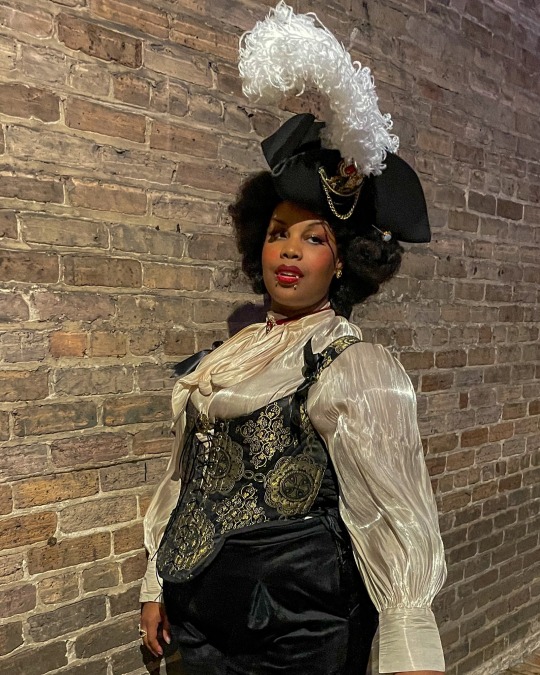

baroque gentle lady | IG
#I’m wearing vampire teeth that’s not popcorn I swear#baroque aesthetic#antique aesthetic#black people in historical costume#historical costuming#georgian era#marie antoinette#gold#dandy aesthetic#dandy#fancy dress#mignonne#2023#vampire aesthetic#black
3K notes
·
View notes
Text
You know what absolutely fucks about Austen? Being some little old ladies companion. I just can imagine me and my grandmother waltzing the countryside, chatting shit, I read to her due to her bad eye sight and play the harpsichord or something. People ask when I will marry and my grandmother beats them off with a stick because I'm Her Companion and will not leave her for some Man.
#only in an austen scenario im a woman cuz men have two roles love interest or villain (or both) and i dont have time for that shit#i gotta takencare of my grandmother#does anyone else understand this urge?#jane austen#pride and prejudice#northanger abbey#mansfield park#georgian era
1K notes
·
View notes
Photo
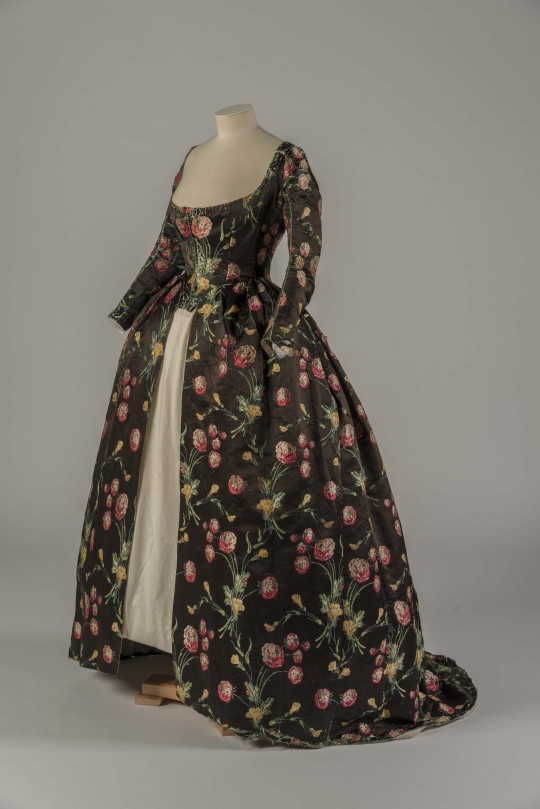
Robe a l’Anglaise
Dress c.1748; Altered c.1780
Fashion Museum Bath via Twitter
#robe a l'anglaise#fashion history#historical fashion#1740s#1780s#georgian fashion#georgian era#rococo era#baroque era#18th century#brown#floral#flower print#silk#fashion museum bath#popular
3K notes
·
View notes
Text

A four piece antique amethyst parure, 1830s, comprising of a graduating oval faceted necklace, a pair of circular- and pear cut amethyst ear pendants with dangling amethysts and an amethyst brooch, all mounted in gold.
Source - IG
#jewelry#gold#jewellery#antique#antique jewelry#victorian#amethyst#amethyst pendant#parure#georgian era#georgian fashion#1800s#19th century
458 notes
·
View notes
Text
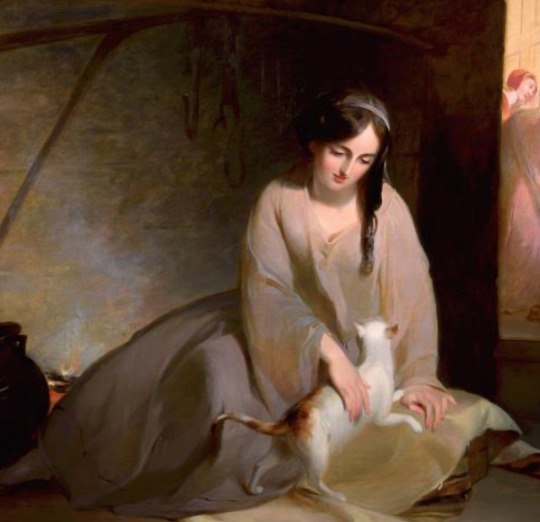
Cinderella. 1843. Source.
608 notes
·
View notes
Photo

The wedding ceremony, Ladies and Gentlemen’s Pocket Companion, 1800
#1800#1800s#etiquette#georgian era#history#vintage#historic#georgian#1800's#wedding#marriage#clergyman#clergymen#relations#family#romance
241 notes
·
View notes
Text

Windsor Castle from Datchet Lane on a rejoicing night, 1768
by Paul Sandby
#windsor castle#art#paul sandby#windsor#datchet lane#england#english#bonfire#night#full moon#river bank#fireworks#river thames#middle ward#winchester tower#star buildings#georgian era#georgian#great britain#history#celebration#king#george iii#torch#tricorn hat#drunken#drunk#castle#british#torchbearer
167 notes
·
View notes
Text



Right in the middle of the 18th century, we have this absolutely frothy pink gown that screams springtime. Yellow bows? Sign me up!
If there is a timeless shape, I'm willing to bet it's this one. Though this doesn't have quite the volume of some of the dresses in this period, it still endures again in the 1830s and 1840s, the 1870s and 1880s, and then again in the 1950s. A fitted bodice, a 3/4 sleeve, and a flared skirt. Plus that gorgeous scoop neck.
This robe à la française was owned by Mrs. Maria Altenburg of Denmark. It then had some adventures of its own, showing up later in Victorian Era costume parties! So it's likely it's had alterations. Most dresses of this era have.
I love the floral spill and the ribbon details! Really marvelous on every level. I am obsessed.
Source: https://digitaltmuseum.no/021069530963/overkjole-med-skjort
#fashion history#textiles#costume#historical costuming#silk dress#costume history#threadtalk#history of fashion#baroque#rococo#extant garments#georgian fashion#georgian era
855 notes
·
View notes
Text
Why Mr. Rochester and Bertha Mason Couldn't Get a Legal Separation; or, the Utter Madness of Marital Laws
So I saw a Jane Eyre post discussing why Mr. Rochester and Bertha Mason couldn't get a legal marital separation. I've thought a lot about this topic, and in order to procrastinate writing the final for my upper-level Brontë class, I've decided to write this sort of convoluted analysis instead. I know many others have written about this subject, but I wanted to explore a bit further on my own.
Preliminary context about me, the Brontës, their Byronic inspiration, etc.: I've learned a lot about 19th century British marriage laws recently in my classes on old British literature, as well as by having studied Byron, whose marital separation in 1816 was a notorious part of his history & also reverberated through 19c literature. He refers to this separation in many of his works, most famously in his notorious poem "Fare Thee Well." Harriet Beecher Stowe, the most famous American female writer at the time, was friends with Lady Byron and wrote a book defending her called "Lady Byron Vindicated: A history of the Byron controversy from its beginning in 1816 to the present time" (the original callout post).
Insanity accusations did factor in to Byron's separation. Many scholars have remarked how the Queens of Byronic Criticism, the Brontë sisters, took significant inspiration from their well-worn copy of Moore's biography Life of Byron when creating their works. The Brontës would have been very familiar with marriage laws not only due to their knowledge of Byron's trainwreck of a marriage, but also due to being well-educated women at the time who knew that marriage was the most important economic decision of one's life and could very well make or break a person. As a result, marriage plays a significant role in their novels.
More relevant preliminary context about the novel: Jane Eyre actually takes place in the Georgian era, despite most adaptations and anaysis presenting is as a Victorian piece due to the novels publication date (this drives me crazy; same goes for the other Brontë books). Marriage laws did not change drastically from the time the novel is set to the time Brontë was writing the novel, but things were a bit different socially. Rochester was also married 15 years before his attempt to marry Jane. According to this very good analysis, Rochester and Bertha probably married in or around the year 1793: https://jane-eyre.guidesite.co.uk/timeline.
Now, here are the reasons why Rochester couldn't separate from Bertha:
1) Insanity wasn't grounds for divorce/separation in the Regency era.
Rochester himself says that he couldn't legally separate from her because of her insanity, which presumably rendered any of her faults null on the grounds of that marital vow "in sickness and in health." This is possibly one of his biggest reasons:
"I was rich enough now – yet poor to hideous indigence: a nature the most gross, impure, depraved I ever saw, was associated with mine, and called by the law and by society a part of me. And I could not rid myself of it by any legal procedings: for the doctors now discovered that my wife was mad — her excesses had prematurely developed the germs of insanity [..]"
2) Divorce was nearly impossible anyway.
There had only been around 300 divorces in English history at the time. Almost all of them were husbands divorcing their wives for committing adultery. Only a handful of divorces had succesfully been obtained by women, and they were only in cases where the husband had committed incestuous adultery or bigamy, and was extremely physically cruel. So technically after his bigamy attempt, Bertha may have had more grounds to obtain a divorce than Rochester would have, if only she were lucid enough to do so. However, in that scenario infertility would have helped their case, and Adèle's existence would have harmed their case if he attempted to seek a divorce before marrying Jane. Though as the novel explains, Adèle is probably not his, she definitely would have been used against him, as would the fact that he kept Bertha's existence a secret in England. But he wouldn't have tried for divorce that late in the game anyway, considering it was one of the most difficult options.
3) Female adultery was your best bet at divorce or separation, and this probably wasn't applicable to Mr. & Mrs. Rochester.
Although some scholars claim that there is subtext hinting that Bertha was adulterous (which some adaptations, like the 2006, include), you needed substantial proof of the adultery, which Rochester may not have had if it did occur. Being a proud man, he also wouldn't have wanted to be humiliated in that way by letting it be publicly known (as shame is one of his main reasons for hiding their marriage to begin with).
However, I lean toward the idea that Bertha may not have committed adultery. If she definitively did, seeing how affected Rochester was by Céline cheating on him (he shot her lover in revenge and left her with a stipend), if he ever suspected adultery on Bertha's part then I'm sure he would have been at court the very next day. I also think Rochester tries not to be too much of a hypocrite, and he is well aware that he himself is an adulterer, so he probably doesn't want to accuse Bertha of a crime he's committed and which he couldn't definitively prove she did.
Rochester does talk about hating Bertha's "vices" when they lived together, citing drinking, arguing, cruelty to servants, cursing, her being "unchaste," a "harlot," etc. - the last epithets, combined with her supposed lack of morality, and her being described as seductive, heavily imply that adultery could be added to her list of offenses. However, if she did truly cheat on him as well, I don't see why he wouldn't plainly tell this to Jane as well. I would imagine it would be his first complaint, and it would probably be considered his most justifiable reason against her by their cultural standards.
I don't see why he wouldn't jump to take Bertha's infidelity as an opportunity to defend his own actions, considering how open he is with Jane about his own adultery and being cheated on by Cèline Varens. While I can see how some of the textual evidence may strongly suggest Bertha's adultery, we cannot be fully certain, and that may be because Rochester himself is not fully certain. I cannot see why he wouldn't have sought legal advice on that account alone.
In short, if Bertha was an adulterer, there must have been no evidence to convict her.
Also: while the double-standard may seem odd and trivial to us, the reason why female adultery held more weight than male adultery has entirely to due with old patriarchal inheritance laws; i.e the risk of a wife getting extramaritally pregnant and passing the illegitimate child off as her husband's heir was considered too great of an affront. A man could have as many bastards as he wanted because he would know they were bastards and were not at risk of inheriting his stuff. One needed legitimate heirs to justify passing on one's ancestral wealth to. Essentially, marriage was a mere economic tool, and the economy was and is inherently patriarchal. I digress.
4) Rochester's lack of social & economic leverage, and risk of social ruin in general.
Only the wealthiest of the wealthy could obtain divorce or official separation, and it often led to social ruin. Rochester is rich, but he has no title and no great network of supporters due to being a younger son and having been abroad for most of the past 15 years (this was the length of his marriage to Bertha, stated by Mr. Briggs during the bigamous wedding attempt). He doesn't have as much leverage as Lord and Lady Byron had.
To continue on official separation, like Lady and Lord Byron obtained. Just like divorce, this was also a messy and scandalous legal proceeding, and required numerous good reasons to obtain, and being well-connected Lords and Ladies really helped your case. You also needed many witnesses and written statements as evidence. Bertha's family, as we see with Mason, would have been unhelpful to Rochester, and due to his shame and secrecy, no one could really testify on his behalf I'm assuming.
5) Unofficial separation would have been inconvenient, especially in regards to living situations.
Aside from divorce, which was extremely rare, extremely controversial, and only for the wealthiest members of society — there were unofficial and official separations. An unofficial separation was simply living apart from one another. I've often wondered why Rochester didn't simply move Grace Poole and Bertha somewhere else, but my main theory is that it would have been cost ineffective, and due to his family who were implied to be shitty, he probably really didn't want to live at Thornfield anyway so thought it would be convenient to place her there. Rochester says it would be dangerous to place her in his other residence of Ferndean:
"[..] though I possess an old house, Ferndean Manor, even more retired and hidden than this, where I could have lodged her safely enough, had not a scruple about the unhealthiness of the situation, in the heart of a wood, made my conscience recoil from the arrangement. Probably those damp walls would soon have eased me of her charge: but to each villain his own vice; and mine is not a tendency to indirect assassination, even of what I most hate."
6) Annulment was likely impossible given their circumstances.
Annulment means evaporating the marriage, acting as if it never existed, that it was a mistake. This was rare and only granted in unique circumstances, and I believe it was more common with aristocracy and royals. I believe you could possibly get an annulment if you could prove that the spouse was insane at the time of the wedding and you did not know. However, Bertha did not begin to truly deteriorate until after they had been living together for a bit. And while Rochester says that he did not know her mother was in an asylum until after the wedding, having an insane mother doesn't mean that you are insane, which Bertha clearly wasn't at that point, at least not in a way that people would have publicly acknowledged, since Rochester says she attended parties and her hand was highly sought after.
Generally, the longer a marriage had gone on, the harder it was to prove why it could not go on. Rochester says that he and Bertha "lived together" for "four years" in Jamaica while her condition deteriorated and he tried to make things work. And again, after the wedding he found out her mother was "mad, and shut up in a lunatic asylum." So we have more reasons for Rochester's difficulty: the fear of Bertha going to an asylum while she was still mostly lucid in those first four years, combined with the fact that they openly lived together and certainly must have consummated their marriage (things which would further prevent annulment), and were certainly publicly recognized as a couple in Spanish Town society, and her family wanting the marriage to continue so she could have children of "good race" i.e. to produce heirs.
Here's an important passage that to me suggests that Rochester and Bertha not only had an initial flirtation but likely consummated their marriage, likely had a passionate sexual relationship for some time, and likely implies his feelings for her were more complex than we'd initially assume, making annulment not so clear-cut of an option to him at the time:
"My father said nothing about her money; but he told me Miss Mason was the boast of Spanish Town for her beauty: and this was no lie. I found her a fine woman, in the style of Blanche Ingram; tall, dark, and majestic. Her family wished to secure me because I was of a good race; and so did she. They showed her to me in parties, splendidly dressed. I seldom saw her alone, and had very little private conversation with her. She flattered me, and lavishly displayed for my pleasure her charms and accomplishments. All the men in her circle seemed to admire her and envy me. I was dazzled, stimulated: my senses were excited; and being ignorant, raw, and inexperienced, I thought I loved her. There is no folly so besotted that the idiotic rivalries of society, the prurience, the rashness, the blindness of youth, will not hurry a man to its commission. Her relatives encouraged me; competitors piqued me; she allured me: a marriage was achieved almost before I knew where I was. Oh, I have no respect for myself when I think of that act! — an agony of inward contempt masters me. I never loved, I never esteemed, I did not even know her."
7) Spousal abandonment wasn't possible, and on some level he honored his legal and financial obligations to her and the Mason family.
Bertha's family likely refused to house her for legal and personal reasons, and spousal abandonment was forbidden due to the husband's financial responsibility as well as the law of coverture (a wife became her husband's full legal responsibility; some say "property"). Like we see in Anne's Tenant of Wildfell Hall, if a woman ran away from their spouse they would have to live in obscurity and be at risk of being sussed out. You couldn't just abandon your partner. Still, people did, because it was the easiest route to take.
But the more upper-class you were, and the more financial entanglements you had, the more inconvenient this was. We know that Rochester and his family became enmeshed with the Mason family, and he got a lot of money from Bertha, so her father likely would have taken him to court. At any rate, Rochester was legally bound to bring Bertha with him to England when he left Jamaica. If he attempted to abandon her in Jamaica, the backlash it would have brought would have brought him social ruin and foiled his chances at getting away with any bigamy attempts.
All this brings us to a further notice of Bertha's family situation. Based on Charlotte Brontë's positive comments about Rochester's character (https://www.tumblr.com/burningvelvet/731403104856195072/in-a-letter-to-w-s-williams-14-august-1848) I see no reason to suspect him, like many feminist critics do, of being an unreliable narrator or of lying about Bertha Mason's history. Everyone is entitled to their opinions, and in mine, that is simply not the novel Charlotte wrote. By her own admission, she wanted his narrative to be a path to further goodness.
It makes no narrative sense for our explanation of his and Bertha's history to be full of lies when he's trying to make ammends with Jane, who never suspects him of lying during his admission, but who does critique him and figure he'd tire of her like she was one of his many mistresses. Jane wonders if Rochester would lock her in an attic too, which he refutes on the basis that he loves her more than he loved Bertha when she was sane, and so he would care for Jane himself. Jane also tells him that it's not Bertha's fault that she's mad. So in my opinion, if Charlotte wanted us to believe Rochester was lying about his and Bertha's history to make himself look better or Bertha look worse, I don't see why she would have been vague about it, and I don't see why Jane wouldn't have called it out like she does everything else. I don't think Rochester is really a villain who locked his harmless wife in the attic for giggles; I think he weighed most of his options and found, like most people back then and even today, that keeping his problems locked up and ignored was the best solution.
Now, on with the point. I have often wondered why Rochester didn't simply "unofficially separate" from Bertha by leaving her with her family when he left. Why did he take her to England? Why didn't he just run away? It wasn't because he was an evil villain who wanted to keep her as a trophy. It's because 1) I don't think her father would have let him, as he was so quick to marry her off, 2) he felt obligated to her, and 3) it was criminal for men to abandon their wives, and it would have attracted publicity, which is what Rochester was avoiding by taking Bertha to England and sheltering her in secrecy.
Many claim that Rochester's adultery is a betrayal of his wife; and while religiously, narratively, socially, we can accept this statement, it was not legally a crime. While Rochester does honor his financial and legal obligations to his wife and her family, he does not take the religious part of the vows into account, and that's why he's cosmically punished and only rewarded after he repents, as he explains toward the end of the novel.
Another interesting point is that when Rochester recounts his decision to move back to England, he tells us that Bertha had already been declared insane in Jamaica and that she was already confined there (presumably around the 4 year anniversary before they left), meaning her father probably knew about confinement:
"One night I had been awakened by her yells (since the medical men had pronounced her mad, she had of course been shut up) — it was a fiery West Indian night; [..]"
Locking away "insane" people was standard procedure then, and if this was done with Bertha's father's knowledge, considering he locked his own wife away in an asylum, then this further absolves Rochester of a lot of the blame in my opinion. It more than likely wasn't his idea to lock her away, but the advice of "the medical men" and presumably her father's consultation as well.
8) Even if he divorced or separated from her, he couldn't remarry. Attempting these, or getting caught attempting abandonment, would have brought negative publicity that would have likely prevented the success of any future bigamy attempts. To him, secrecy and bigamy seemed better chances at securing happiness than the social ruin and likely failure the other options would have brought him.
Aside from Rochester's own explanation (which I supplied in #2 re: the separation veto inherent to Bertha's insanity), the other biggest reason as to why Rochester wouldn't seek a separation/divorce even if she hadn't been declared insane and even if he were willing to accuse her of adultery truthfully or not, is due to the fact that one could not legally remarry upon separation or divorce (unless you were Henry VIII and got God's permission lol). Rochester's impossible dream is that he wants to be married to someone he really loves, and if secrecy and bigamy are his only options then he is willing to succumb; this is shown in numerous passages:
"[..] I could reform — I have strength yet for that — if— but where is the use of thinking of it, hampered, burdened, cursed as I am? Besides, since happiness is irrevocably denied me, I have a right to get pleasure out of life: and I will get it, cost what it may."
"I will keep my word: I will break obstacles to happiness, to goodness — yes, goodness; I wish to be a better man than I have been; than I am — as Job's leviathan broke the spear, the dart, and the habergeon, hinderances which others count as iron and brass, I will esteem but straw and rotten wood."
"Is there not love in my heart, and constancy in my resolves? It will expiate at God's tribunal. I know my Maker sanctions what I do. For the world's judgment — I wash my hands thereof. For man's opinion — I defy it."
Closing remarks on the above's validity: I can't cite all my sources because a lot of this stuff I learned from lectures via my professor who specializes in 19th century English literature & history. But here's some recently published information from a historian, taken from "Inside the World of Bridgerton: True Stories of Regency High Society" by Catherine Curzon (2023):
"And if you were one of the newly-weds, you really did hope things would work out, because in the Regency till death do us part wasn't just an expression. As the Prince Regent himself had learned when he separated from his wife within eighteen months of their marriage, obtaining a divorce in Regency England was no easy matter. He never achieved it, and for those who did the stakes could be high and the cost ruinous in every sense."
"Until the passing of the Matrimonial Causes Act of 1857, which legalized divorce in the civil courts, it was governed by the ecclesiastical courts, and the Church didn't end a marriage without very, very good reason. Even these divorces didn't allow a couple to remarry, though, and they were more akin to what we would today call a legal separation, with no shared legal or financial responsibilities going forward. It was freedom, but only to a point."
"The only way to obtain a complete dissolution that allowed for remarriage was to secure a parliamentary divorce, and these were notoriously difficult to obtain. They began with a criminal conversation case, because they relied on adultery by one of the parties to make them even a slight possibility. If a woman committed crim. con., her life in polite society was over."
#jane eyre#lord byron#charlotte brontë#charlotte bronte#byronicism#marriage#divorce#marriage laws#english history#english legal history#mr. rochester#bertha mason#mr rochester#analysis#literature#english literature#history#Inside the World of Bridgerton: True Stories of Regency High Society#regency era#georgian era#19th century#1800s#victorian#Catherine Curzon#interesting#essays#the bronte sisters#the brontes
279 notes
·
View notes
Text

Arsema Thomas as Lady Agatha Danbury in Queen Charlotte: A Bridgerton Story (TV Mini-Series, 2023).
#arsema thomas#lady agatha danbury#queen charlotte: a bridgerton story#perioddramaedit#18th century#georgian era#lyn paolo#laura frecon
220 notes
·
View notes
Text

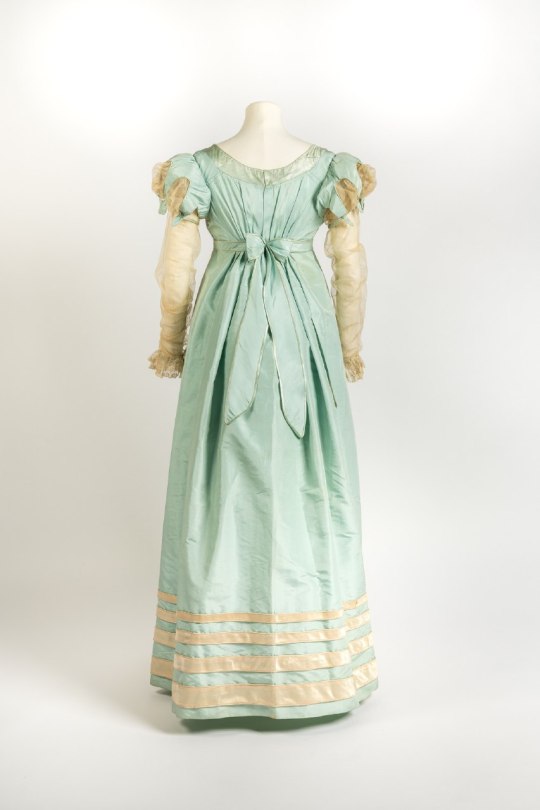
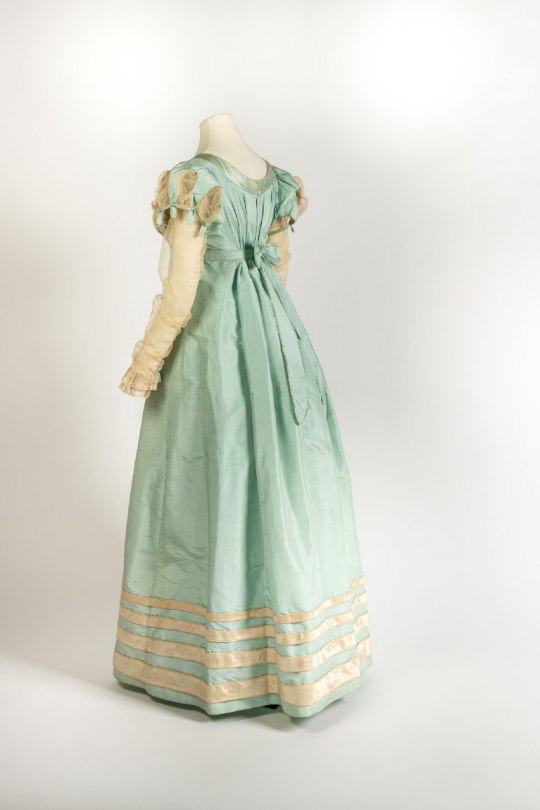
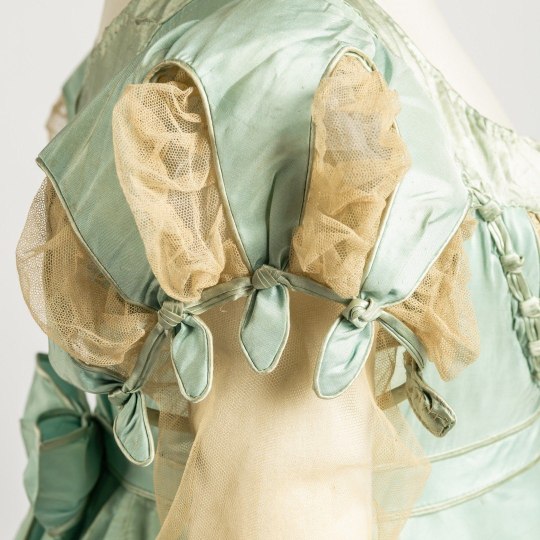

"Duck egg blue silk evening dress from the late 1810s. This exquisite example with its fuller skirt shape and elaborate trimmings reflects a move away from the neo-classical influences of the previous decade towards the more romantic tastes of the 1820s. Decorated with all kinds of delightful details, we can’t get enough of those cream satin bands above the hem and how they end as graduated tabs inside loops of stunning cream rouleaux."
Via Fashion Museum Bath Instagram
#fashion history#historical fashion#19th century#regency era#regency fashion#regency#georgian#georgian era#georgian fashion
570 notes
·
View notes
Text
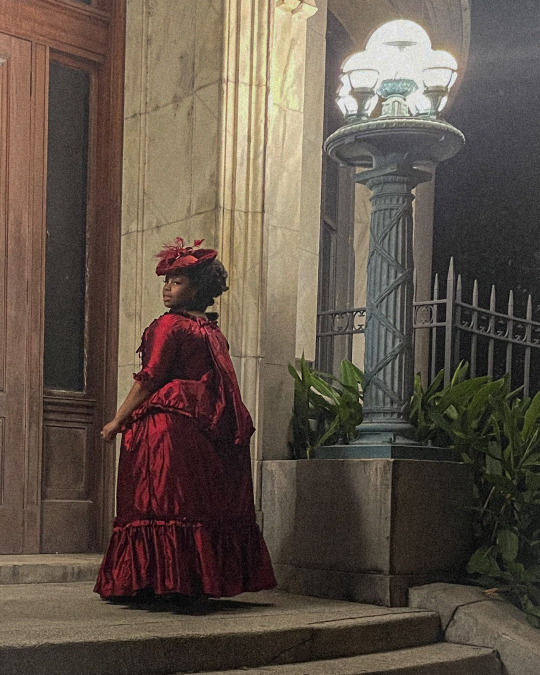
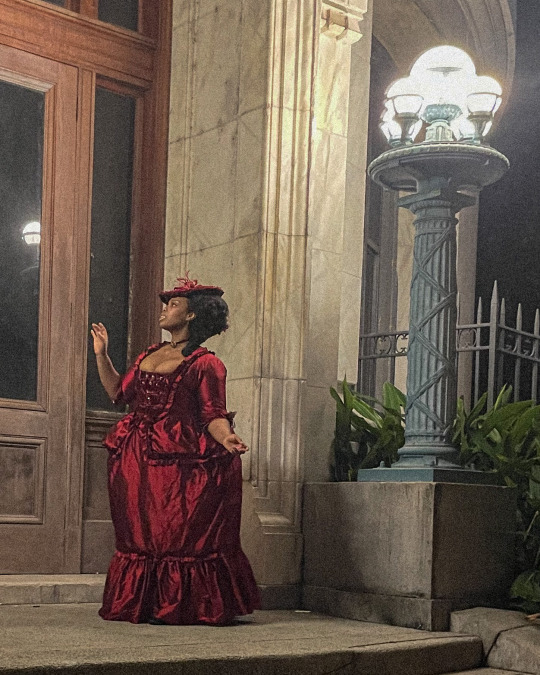
une vieille âme à Nouvelles Orléans
#vampire aesthetic#georgian era#georgian#18th century#antique aesthetic#marie antoinette#baroque aesthetic#late baroque#plus size dark academia#black dark academia#poc dark academia#vampire academia#dark academia#antique academia#baroque academia#mignonne#2022#red#georgiana cavendish#1770s
4K notes
·
View notes
Text
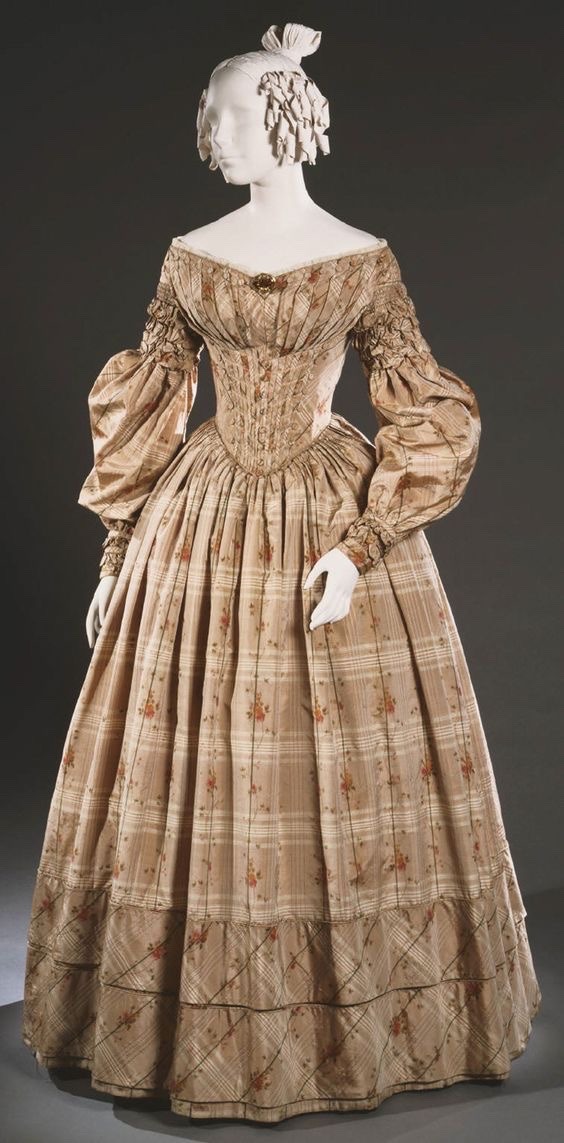
#historical fashion#fashion#historical#history#historical clothing#historical dress#long dress#victorian#victorian era#victorian fashion#georgian era#1830s#1830s dress#1830s fashion#19th century fashion#mid 19th century#19th century#victorian clothing#victorian history#victorian dress#victorian england#textile#dress#fashion dress#old fashioned#dresses#georgian fashion#high fashion#day dress#gown
266 notes
·
View notes
Photo
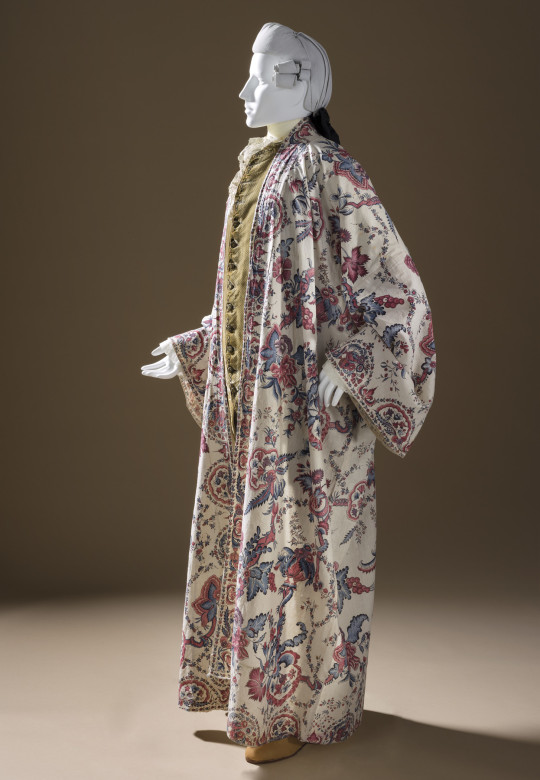

Banyan
c.1750
Coromandel Coast, India for Western Market
LACMA (Accession Number: M.2005.42)
#banyan#fashion history#historical fashion#menswear#mensfashion#1750s#18th century#india#cotton#paint#dye#1750#1755#1759#georgian fashion#georgian era#lacma#fucking LOVE the back
761 notes
·
View notes
Text
A Young Person's Guide to 18th-Century Western Fashion
unabridged version at blogspot
General info
Cox, Abby. "I Wore 18th-Century Clothing *Every Day for 5 YEARS & This Is What I Learned (Corsets Aren't Bad!)." YouTube. May 10, 2020.
Cullen, Oriole. “Eighteenth-Century European Dress.” In Heilbrunn Timeline of Art History. New York: The Metropolitan Museum of Art, 2004.
Glasscock, Jessica. "Eighteenth-Century Silhouette and Support." In Heilbrunn Timeline of Art History. New York: The Metropolitan Museum of Art, 2004.
Accessories
Banner, Bernadette. "Women's Pockets Weren't Always a Complete Disgrace | A Brief History: England, 15th c - 21st c." YouTube. April 10, 2021.
Colonial Williamsburg. "#TradesTuesday: Men's Accessories." YouTube. June 13, 2021.
Murden, Sarah. "The Georgian era fashion for straw hats." All Things Georgian. December 6, 2018.
Cosmetics & hygiene
Cox, Abby. "I Followed an 18th-Century Moisturizer & Sunscreen Recipe & it kinda worked??." YouTube. February 21, 2021.
Cox, Abby. "We tried making *5* different 250 year old rouge (blush) recipes || [real] regencycore makeup." YouTube. August 29, 2021.
JYF Museums. "Hygiene in the 18th Century | From the Farm to the Army." YouTube. August 21, 2021.
Décor
Heckscher, Morrison H. “American Rococo.” In Heilbrunn Timeline of Art History. New York: The Metropolitan Museum of Art, 2003.
Munger, Jeffrey. “French Porcelain in the Eighteenth Century.” In Heilbrunn Timeline of Art History. New York: The Metropolitan Museum of Art, 2003.
Formal wear
SnappyDragon. "This dressing gown changed fashion forever : the feminist history of going out in loungewear." YouTube. April 15, 2022.
Stowell, Lauren. "The Many Types of 18th Century Gowns." American Duchess. March 15, 2013.
Zebrowska, Karolina. "Cottagecore Style Is Much Older Than You Think." YouTube. June 30, 2021.
Hair care
Cox, Abby. "I made 250-year-old Hair Products Using Original Recipes (and animal fat...)." YouTube. November 7, 2021.
Cox, Abby. "I tried a 300-year-old hair care routine for a year & this is what I learned (it's awesome!)." YouTube. January 23, 2022.
Cox, Abby. "What's the Deal with 18th Century Wigs? (and why Bridgerton really messed this up)." YouTube. June 1, 2023.
Laundry
Cox, Abby. "Making 300 Year Old SLIME for Laundry Day." YouTube. June 15, 2023.
Townsends. "Historical Laundry Part 2: No Washing Machine, No Dryer, Hit It With A Stick?" YouTube. June 3, 2019.
Outer- & working-wear
JYF Museum. "Getting Dressed | Clothing for an 18th Century Middling Woman." YouTube. March 18, 2021.
Major, Joanne. "The practicalities of wearing riding habits, and riding ‘en cavalier’." All Things Georgian. March 12, 2019.
Rudolph, Nicole. "What did Pirates ACTUALLY Wear? Fashion at Sea in the 18th c & Our Flag Means Death Costumes." YouTube. May 8, 2022.
Shoes
Chin, Cynthia E. "Martha Washington's Shoes." George Washington's Mount Vernon. No date.
Murden, Sarah. "18th-century shoes." All Things Georgian. December 15, 2015.
Rudolph, Nicole. "Real 18th century Shoes? Historical Shoemaker Examines an Antique." YouTube. December 13, 2020.
Textiles
Cox, Abby. "18th Century Printed Cotton Do's & Don't's." American Duchess. December 23, 2019.
Stowell, Lauren. "Fabrics for the 18th Century and Beyond." American Duchess. June 14, 2021.
Townsends. "Oil Cloth - Waterproof Coverings for Your Campsite." YouTube. July 30, 2018.
Undergarments
Major, Joanne. "Quilted Petticoats: worn by all women and useful in more ways than one." All Things Georgian. November 20, 2018.
Rudolph, Nicole. "Making 18th century Stays for the Ideal Body Shape : Historical Undergarments." YouTube. August 12, 2023.
SnappyDragon. "RUMP ROAST : Ranking historical fashion's wildest fake butt pads." YouTube. October 27, 2023.
Townsends. "Sewing Histories' Most Popular Garment - The Fabric Of History - Townsends." YouTube. September 3, 2022.
#reference#history#abby cox#bernadette banner#fashion#hair care#hairstyle#youtube#video#nicole rudolph#townsends#us history#american history#colonial williamsburg#jamestown#georgian era#rococo#1700s#american duchess#mount vernon#bridgerton#the metropolitan museum of art#our flag means death
139 notes
·
View notes